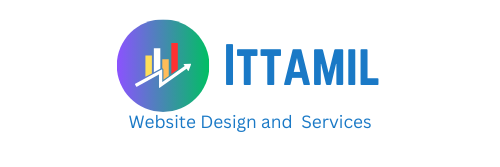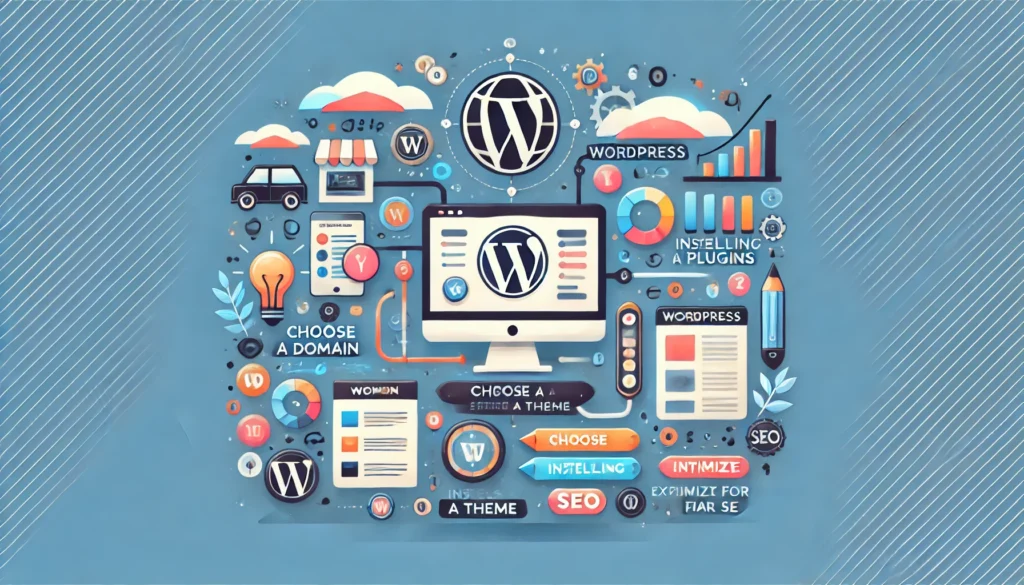Hello, Everyone Today I published article about Mastering WordPress Website Development. Are you ready to dive into the world of WordPress website development? Whether you’re a beginner or looking to enhance your skills, this guide is packed with insights, tips, and answers to common questions. WordPress powers over 40% of all websites, making it a go-to choice for developers and businesses alike. Let’s unlock the secrets to creating a stunning, high-performing WordPress site!
Understanding WordPress: The Basics
What is WordPress?
WordPress is an open-source content management system (CMS) that allows users to create and manage websites effortlessly. It started as a blogging platform in 2003 but has evolved into a versatile tool for building various types of websites, from e-commerce stores to portfolios.
Why Choose WordPress?
- User-Friendly: With its intuitive interface, WordPress is accessible even to non-technical users.
- Customizable: Thousands of themes and plugins allow endless customization possibilities.
- SEO-Friendly: WordPress is built with SEO best practices in mind, helping your site rank higher in search engines.
- Community Support: A large, active community means plenty of resources, forums, and tutorials are available.
Getting Started with WordPress
Step 1: Choose a Domain and Hosting Plan
Your domain is your website’s address on the internet, while your hosting plan is where your website lives. For beginners, we recommend hosting providers like Namecheap or Bluehost, which offer excellent WordPress hosting plans.
Step 2: Install WordPress
Most hosting providers offer one-click WordPress installation. Once installed, you can access your WordPress dashboard by navigating to “yourdomain.com/wp-admin”.
Step 3: Select a Theme
WordPress offers both free and premium themes. Choose a theme that aligns with your brand and desired functionalities. Popular themes include Astra, OceanWP, and Divi.
Step 4: Install Essential Plugins
Plugins extend the functionality of your WordPress site. Some must-have plugins include:
- Yoast SEO: For optimizing your content for search engines.
- WooCommerce: If you plan to run an online store.
- Elementor: A powerful page builder for designing custom layouts.
- WPForms: For creating contact forms.
Frequently Asked Questions About WordPress Website Development
1. How Do I Make My WordPress Site Secure?
Website security is crucial. Here are some tips:
- Use strong passwords and change them regularly.
- Install security plugins like Wordfence or Sucuri.
- Keep WordPress, themes, and plugins updated to the latest versions.
- Use HTTPS to encrypt data transmitted between your site and users.
2. How Can I Improve My Site’s Speed?
A fast website enhances user experience and boosts SEO. To improve speed:
- Choose a reliable hosting provider.
- Optimize images using plugins like Smush.
- Use a caching plugin such as W3 Total Cache or WP Super Cache.
- Minimize the use of heavy plugins and scripts.
3. How Do I Optimize My Site for SEO?
SEO is key to driving organic traffic. Focus on:
- Keyword research to identify the terms your audience is searching for.
- Optimizing on-page elements like titles, meta descriptions, and headers.
- Creating high-quality, relevant content.
- Building backlinks from reputable sites.
4. Can I Integrate Social Media with My WordPress Site?
Absolutely! Use plugins like Social Snap or Smash Balloon to add social sharing buttons, display social feeds, and enable social login.
5. How Do I Track My Site’s Performance?
Use Google Analytics to monitor traffic, user behavior, and other critical metrics. Installing the MonsterInsights plugin makes this process seamless.
Advanced Tips for WordPress Development
Utilize Child Themes
A child theme allows you to make changes to your site without affecting the original theme. This is essential for maintaining customizations after theme updates.
Implement a Backup Solution
Regular backups ensure you can restore your site in case of data loss. Plugins like UpdraftPlus or BackupBuddy can automate this process.
Leverage Custom Post Types
Custom post types expand the types of content you can create beyond posts and pages. This is useful for portfolios, testimonials, and other unique content.
Use Custom CSS and JavaScript
Enhance your site’s design and functionality by adding custom CSS and JavaScript. This allows for greater customization and can improve user experience.
Explore Page Builders
Page builders like Elementor, Beaver Builder, and WPBakery provide drag-and-drop interfaces to create complex layouts without coding.
Conclusion
WordPress website development offers endless possibilities, whether you’re creating a personal blog or a robust e-commerce site. By following best practices, utilizing essential tools, and continuously learning, you can build a site that stands out and meets your goals. Happy developing!



